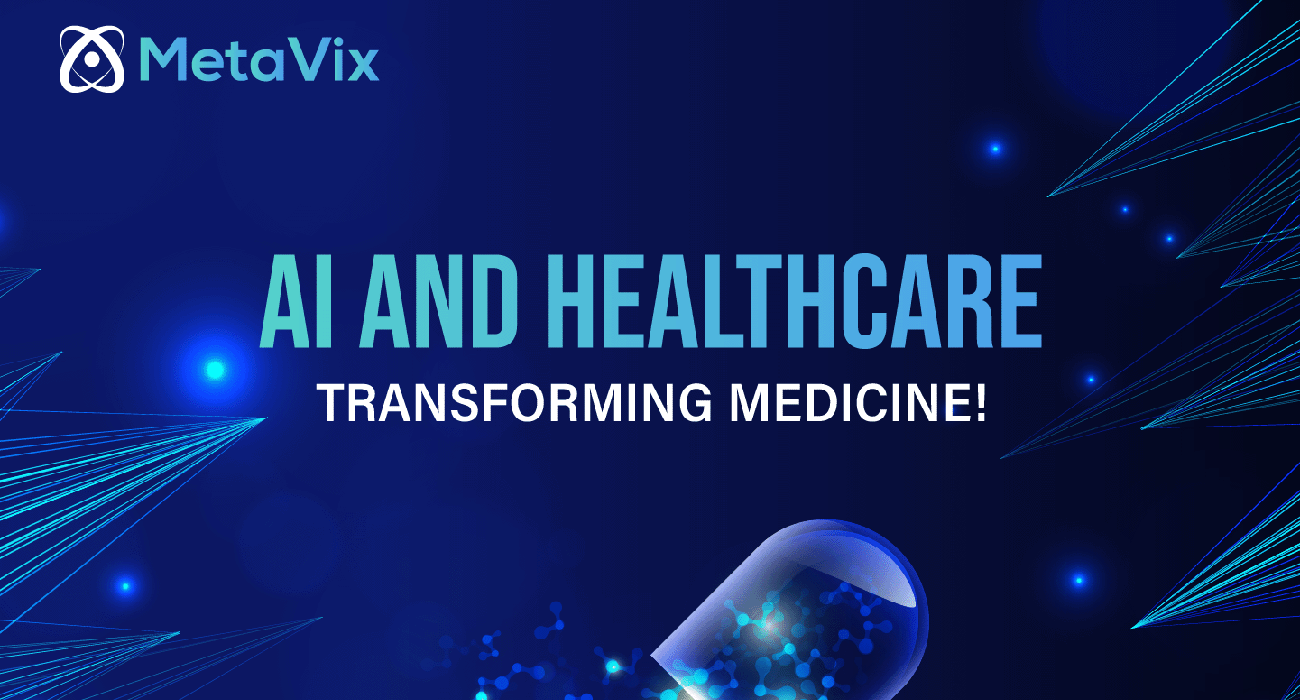Introduction: The Intersection of AI and Medicine In recent years, Artificial Intelligence (AI) has made significant strides across various industries, but perhaps its most impactful application is in healthcare. By leveraging the power of AI, we are witnessing a transformation in how medical care is delivered, diseases are detected, and patients are treated. This blog explores the fascinating ways AI is revolutionizing healthcare, offering insights into early disease detection, personalized treatment, virtual health assistants, predictive analytics, and robotic surgery.
Early Disease Detection: Catching Illnesses Sooner One of the most promising applications of AI in healthcare is in the early detection of diseases. Traditional diagnostic methods often rely on visible symptoms and extensive testing, which can sometimes lead to late diagnoses. AI, however, can analyze vast amounts of medical data quickly and accurately, identifying patterns that may be invisible to the human eye. For instance, AI algorithms can examine medical images such as X-rays, MRIs, and CT scans to detect early signs of diseases like cancer, often before symptoms appear. Studies have shown that AI can achieve higher accuracy rates than human radiologists in certain cases, leading to earlier intervention and improved patient outcomes.
Personalized Treatment: Tailoring Therapies to Individuals AI is also playing a crucial role in the development of personalized medicine. By analyzing a patient’s genetic information, lifestyle, and medical history, AI can help doctors tailor treatment plans that are specifically designed for the individual. This approach contrasts with the traditional one-size-fits-all method, which may not be effective for everyone. For example, AI can predict how a patient will respond to a particular drug, allowing doctors to choose the most effective treatment with the fewest side effects. This personalized approach not only enhances the effectiveness of treatments but also minimizes the trial-and-error process, leading to faster and more accurate medical care.
Virtual Health Assistants: 24/7 Patient Support The rise of virtual health assistants powered by AI is another game-changer in healthcare. These digital assistants can provide round-the-clock support, answering patient queries, scheduling appointments, and offering reminders for medication and follow-up visits. More advanced virtual assistants are capable of conducting preliminary assessments, collecting patient symptoms, and providing guidance on whether a visit to the doctor is necessary. This not only improves patient engagement but also reduces the burden on healthcare providers, allowing them to focus on more critical cases.
Predictive Analytics: Anticipating Health Outcomes Predictive analytics, driven by AI, is transforming how healthcare providers manage patient care. By analyzing historical data and identifying trends, AI can predict potential health outcomes and complications. This allows for proactive management of chronic diseases and the prevention of adverse events. For instance, AI can help identify patients at high risk of developing conditions such as diabetes or heart disease based on their current health data and lifestyle choices. Healthcare providers can then intervene early with preventive measures, ultimately improving patient health and reducing healthcare costs.
Robotic Surgery: Precision and Efficiency AI-guided robotic surgery represents a significant advancement in surgical precision and efficiency. These robotic systems assist surgeons in performing complex procedures with greater accuracy, minimizing human error and reducing the risk of complications. Robotic surgery is particularly beneficial in minimally invasive procedures, where precision is paramount. With AI, robots can make precise movements and decisions in real-time, guided by the surgeon’s input and advanced algorithms. This leads to shorter recovery times, less pain, and better overall outcomes for patients.
Challenges and Ethical Considerations While the potential of AI in healthcare is immense, it is not without challenges and ethical considerations. Ensuring data privacy and security is paramount, given the sensitive nature of medical information. Additionally, there is a need to address potential biases in AI algorithms to ensure equitable treatment for all patients. Moreover, the integration of AI into healthcare systems requires significant investment and training for healthcare providers. Balancing the benefits of AI with these challenges will be crucial in realizing its full potential.
Conclusion: A Healthier Future with AI AI is not just a tool for the future; it is already transforming the healthcare industry in profound ways. From early disease detection and personalized treatment to virtual health assistants, predictive analytics, and robotic surgery, AI is paving the way for a healthier and more efficient medical landscape. As technology continues to evolve, we can look forward to even more groundbreaking advancements that will further enhance patient care and improve health outcomes. Stay informed and embrace the future of healthcare with AI!
Join the Conversation What are your thoughts on AI’s impact on healthcare? Share your insights and let’s discuss how technology is reshaping medicine! #ArtificialIntelligence #AI #HealthcareInnovation #MedicalTech #EarlyDetection #PersonalizedMedicine #HealthTech #PredictiveAnalytics #RoboticSurgery #FutureOfMedicine

